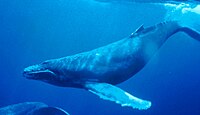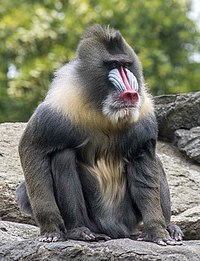
Enrichment of potential pathogens in marine microbiomes with different degrees of anthropogenic activity.
Sign Up to like & getrecommendations! Published in 2020 at "Environmental pollution"
DOI: 10.1016/j.envpol.2020.115757
Abstract: Anthropogenic activities in coastal marine ecosystems can lead to an increase in the abundance of potentially harmful microorganisms in the marine environment. To understand anthropogenic impacts on the marine microbiome, we first used publicly available… read more here.
Keywords: marine microbiomes; enrichment potential; different degrees; microbiomes different ... See more keywords

Human placenta has no microbiome but can harbour potential pathogens
Sign Up to like & getrecommendations! Published in 2019 at "Nature"
DOI: 10.1038/s41586-019-1451-5
Abstract: We sought to determine whether pre-eclampsia, spontaneous preterm birth or the delivery of infants who are small for gestational age were associated with the presence of bacterial DNA in the human placenta. Here we show… read more here.
Keywords: placenta; microbiome harbour; human placenta; placenta microbiome ... See more keywords

Comments to ‘Potential Pathogens Reported in Species of the Family Viverridae and Their Implications for Human and Animal Health’
Sign Up to like & getrecommendations! Published in 2017 at "Zoonoses and Public Health"
DOI: 10.1111/zph.12321
Abstract: The Viverridae is a family of nocturnal carnivores including civets, genets and African linsangs. While a list of known organisms isolated from a species is an essential tool for population management, this review represents the… read more here.
Keywords: health comments; family; potential pathogens; comments potential ... See more keywords

Exosomes of pasteurized milk: potential pathogens of Western diseases
Sign Up to like & getrecommendations! Published in 2018 at "Journal of Translational Medicine"
DOI: 10.1186/s12967-018-1760-8
Abstract: Milk consumption is a hallmark of western diet. According to common believes, milk consumption has beneficial effects for human health. Pasteurization of cow’s milk protects thermolabile vitamins and other organic compounds including bioactive and bioavailable… read more here.
Keywords: milk; pathogens western; exosomes pasteurized; potential pathogens ... See more keywords

Epidemiological Survey and Risk Factor Analysis of 14 Potential Pathogens in Golden Snub-Nosed Monkeys at Shennongjia National Nature Reserve, China
Sign Up to like & getrecommendations! Published in 2023 at "Pathogens"
DOI: 10.3390/pathogens12030483
Abstract: Golden snub-nosed monkeys (Rhinopithecus roxellanae) belong to Class A, the highest level of endangered primate species. Exploring the infection status of potential pathogens in golden snub-nosed monkeys is important for controlling associated diseases and protecting… read more here.
Keywords: nosed monkeys; reserve; potential pathogens; golden snub ... See more keywords